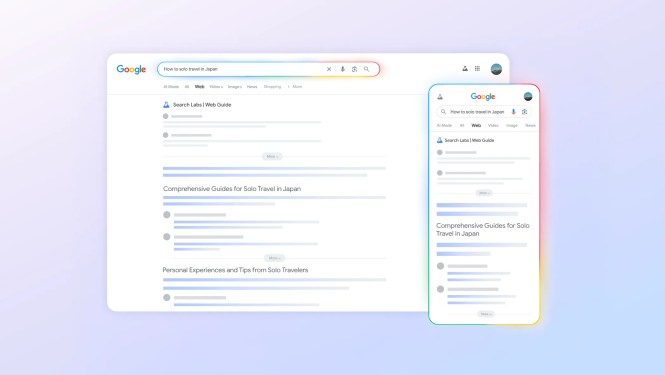Google launched a new AI-powered feature called Web Guide on Thursday. This feature organizes Google Search results by grouping pages related to specific aspects of a search query. Web Guide is currently a Search Labs experiment, allowing users to opt in and test the feature before its wider release.
Search Labs experiments let users try out new Google features, which can be enabled or disabled at any time. Other experiments include AI Mode, Notebook LM, the filmmaking tool Flow, and niche ideas like an audio show based on news from Google Discover.
The Web Guide experiment builds on Google’s existing fan-out technique for displaying search results, similar to AI Mode. Powered by Gemini, the feature helps Google better understand search queries and surface relevant pages that might otherwise be missed in a traditional search.
Google suggests Web Guide works best for open-ended or complex queries, such as “how to solo travel in Japan” or “My family is spread across multiple time zones. What are the best tools for staying connected and maintaining close relationships despite the distance?” The results are organized into sections, each focusing on a different aspect of the query. For solo travel, this could include comprehensive guides, safety tips, and personal experiences shared by travelers.
Initially, the experiment will reconfigure search results on the Web tab, with an option to toggle the feature off without disabling the entire experiment. Google plans to expand Web Guide to other areas of Search, including the “All” tab, over time.
The TechCrunch Disrupt 2025 event will feature industry leaders from Netflix, ElevenLabs, Wayve, and Sequoia Capital, offering insights on startup growth and tech innovation. The event marks the 20th anniversary of TechCrunch Disrupt and will take place in San Francisco from October 27-29, 2025. Early registration offers savings of up to $675 before prices increase.

